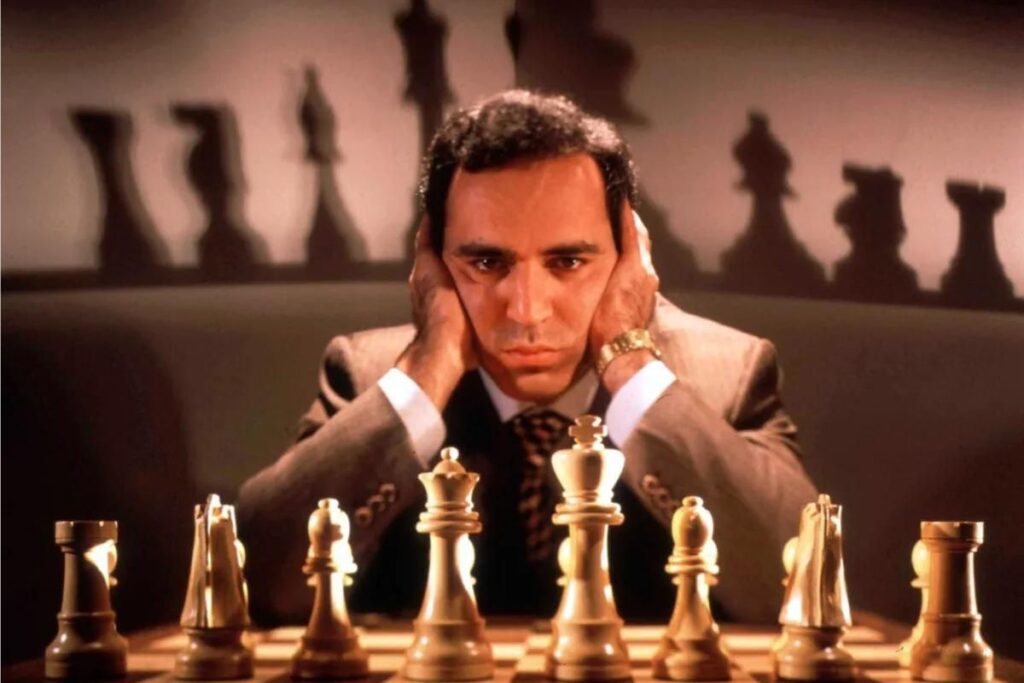Garry Kimovich Kasparov, born on April 13, 1963, in Baku, Azerbaijan, is a Russian chess grandmaster, former World Chess Champion (1985–2000), political activist, and writer. He is considered one of the greatest chess players of all time and has been a prominent figure in the world of chess for over four decades.
Early Life and Chess Career
Kasparov began playing chess at the age of 6 and became the Soviet youth champion at the age of 13. He won his first international tournament at the age of 16 in 1979. Kasparov became an international grandmaster in 1980 and went on to challenge the reigning world champion, Anatoly Karpov, in a 1984–85 match. He won the match and became the youngest world chess champion at the age of 22.
World Chess Champion (1985-2000)
Kasparov held the World Chess Champion title from 1985 to 2000. During his reign, he defended his title in numerous matches and tournaments, showcasing his exceptional skills and determination. He was the first world chess champion to be defeated by a supercomputer in a competitive match, losing to IBM’s Deep Blue in 1997.
Post-Retirement Chess and Political Activism
After retiring from competitive chess in 2005, Kasparov continued to participate in exhibition matches and coach other players.
He also turned his attention to politics, forming the United Civil Front movement and becoming a member of The Other Russia, a coalition opposing the administration and policies of Vladimir Putin.
Kasparov has been a contributing editor to The Wall Street Journal since 1991 and regularly comments on politics and human rights
My Great Predecessors Book Series
Since retiring from chess, Kasparov has devoted his time to writing, producing an acclaimed series of books called “My Great Predecessors” (2003–06). The series covers all the world chess champions from Wilhelm Steinitz through Karpov, as well as many other great players.
Legacy and Achievements
Garry Kasparov’s accomplishments in chess and his dedication to the sport have left a lasting impact on the world of chess.
He has been a trailblazer in the use of computers in chess preparation and has opened the door for a new era in chess history, where machines have become stronger than humans.
Kasparov’s life story is a testament to his tireless thirst for victory and his unique approach to the game.
Garry Kasparov’s extraordinary talent, determination, and impact on the world of chess have secured his place as one of the greatest chess players of all time.
His legacy will continue to inspire future generations of chess players and serve as a reminder of the power of intuition and strategic thinking in the game.
Net worth
Garry Kasparov’s net worth is estimated to be around $6 million as of 2023. Kasparov is a Russian chess grandmaster, writer, and political activist who was ranked number one in the world for a record 255 months between 1984 and his retirement in 2005. He became the youngest ever undisputed World Chess Champion in 1985 and played a total of eight Chess Olympiads.
IQ
While some sources estimate his IQ to be between 185 and 190, others indicate that he scored 135 on an IQ test conducted in 1987-88. The test reportedly assessed his memory, abstract reasoning, and spatial ability.
It’s important to note that IQ scores can vary based on the specific test and the time at which they were taken.
Playing Style
Garry Kasparov’s playing style is characterized by his dynamic and aggressive approach to the game, with a focus on tactics, depth of strategy, subtle calculation, and original opening ideas.
He was known for his extensive opening preparation and aggressive play in it. Kasparov’s attacking style of play has been compared by many to Alekhine, his chess idol since childhood.
Kasparov has described his style as being influenced chiefly by Alekhine, Tal, and Fischer. Other influences on Kasparov were his early coaches.
Kasparov’s contribution to opening theory is acknowledged, and he is credited with developing new variants with computer programs in the 1990s.
His favorite opening systems were the Queen’s Indian with White and variations of the Sicilian Defense with Black. Kasparov’s exceptional memory and cognitive abilities have been widely recognized, contributing to his success as a chess grandmaster and his reputation as one of the greatest chess players of all time


